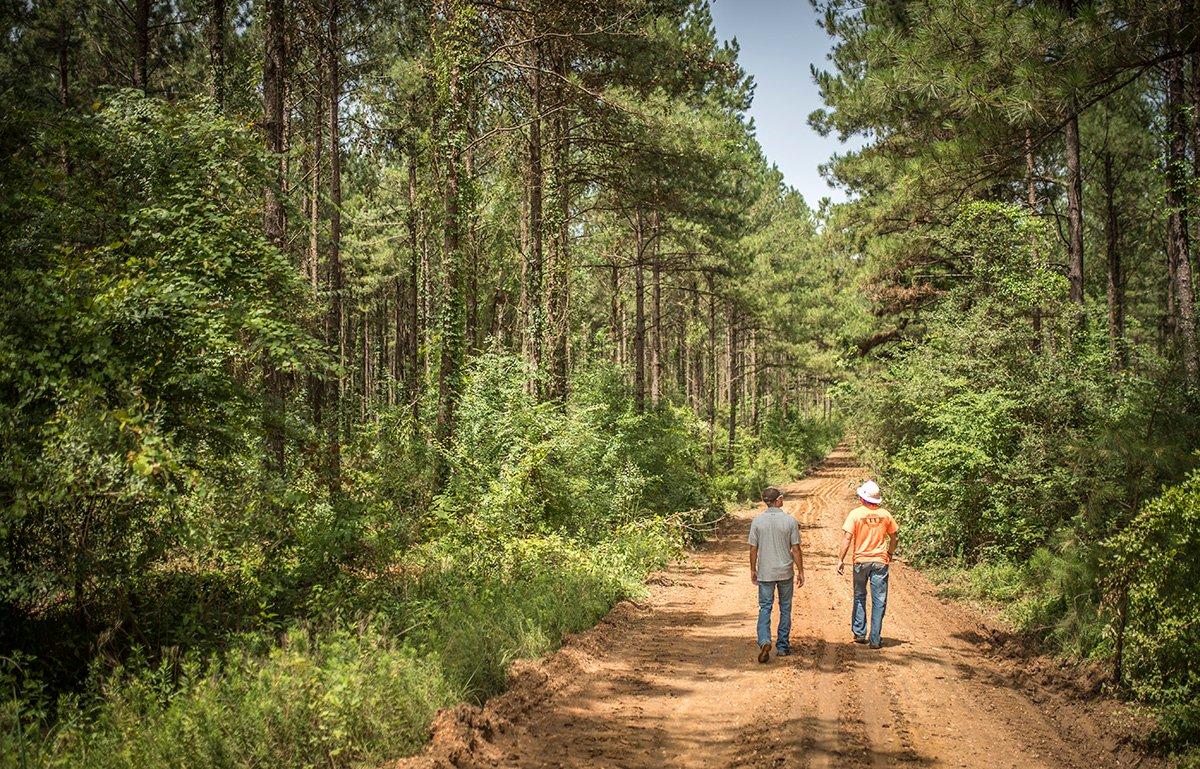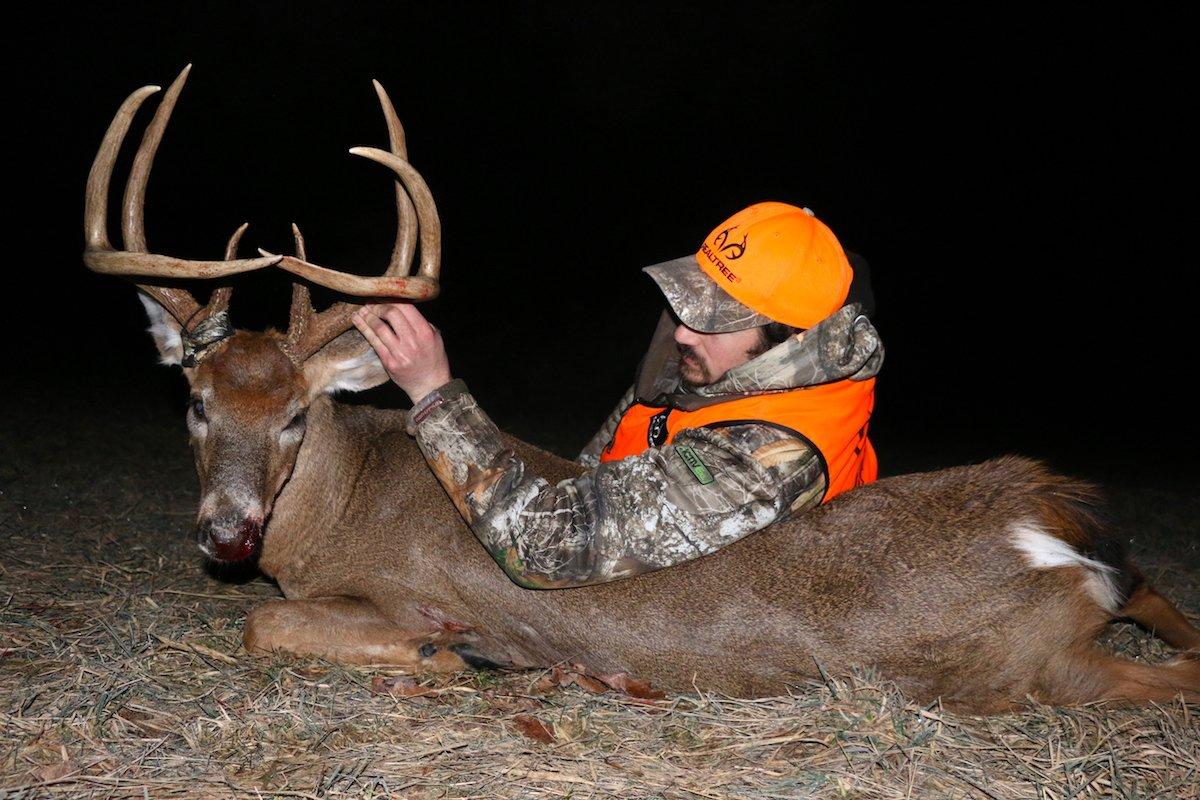If you're thinking about renting some deer hunting ground, read this first
Ever take a bite out of a grapefruit? A little bit sweet, right? But with a sour aftertaste that's a little hard to stomach, too? That's the taste leasing hunting land leaves in my mouth. But in today's deer-hunting world, renting land is often a necessary evil. I've had both good and bad experiences with leasing land, and I've only gotten wiser over time.
Every hunter considering a lease should know what to avoid and how to ensure a good experience for both parties. Here's a little background info on leasing, and some of the ground rules I've set for myself over the years.
Leasing by the Numbers
The average price of a lease is dictated by numerous factors, including dates, acreage, location, wildlife availability and exclusivity. According to the QDMA Whitetail Report, the states with the cheapest leases per acre include Florida ($2), North Carolina ($2), Oklahoma ($3), West Virginia ($3), and Texas ($4).
Meanwhile, the average lease in Georgia runs around $9.97 per acre, according to Georgia Outdoor News, and the Tennessee Wildlife Resources Agency ranks hunting land prices by region, which range from $2.73 per acre (west-central counties) to $4.25 per acre (east-central counties). Other states vary by county and region, too. Most states with really good deer hunting see prices between $10 and 40 per acre. These pricey places include Kansas, Missouri, Illinois, Ohio, Indiana, Kentucky and other Midwestern states.
Types of Leases
When it comes to leasing a property, you have several choices. The best option depends on your specific needs and circumstances.
The first is a service-based lease, which has no fees. Instead, the lessee helps the lessor with a labor or other service, and receives hunting rights in return. The scope of the lessee's services will dictate the length and exclusivity of the lease.
Another option is a short-term lease. Some folks refer to this as a trespass fee. It can be formatted as a single or multi-day deal. This is a great option for hunters who travel out-of-state. If your public-land hunt doesn't pan out, you might be able to pay a day-to-day trespass fee until you kill a deer, or your hunt is over.
The most popular option is a long-term lease. Most of these agreements last for one year, but some last multiple years. Obviously, more habitat- and herd-management opportunities are available the longer you have access to a property, but that ultimately depends on the written agreement.
The Do's and Don'ts of Leasing Land
Don't sign a lease unless you understand all the limitations of the agreement. Familiarize yourself with state laws on private-land use and hunting game laws. Study lease rates, legalities and general rules. Understand liability and, if necessary, obtain adequate insurance.
Don't just focus on big acreage when you lease a property. I leased an Ohio property for three years that was barely 40 acres, and only half of that was huntable. But those huntable 20 acres were really, really good. I took a nice 8-pointer off the property the very first day I hunted it. My dad killed a 140-inch buck off the place. We had multiple opportunities at other good deer that we let walk, waiting for bigger ones. That place was a lot of fun, and I've seen plenty of 200-acre-plus tracts that weren't nearly as productive. Find the right property that consistently produces good deer rather than hoping for the best on a big chunk of dirt.
Do focus on commonly overlooked areas or spots that might pose challenges, such as difficult access. Remember: Less popular areas have lower prices.
Do go in with a good partner. Work with a hunting partner who is trustworthy and has the same goals as you. It's even more helpful if you have similar hunting styles. This leads to less stress and conflict over time, as well as shared management and leasing costs.
Do look at land in-person before signing, whenever possible. But sometimes it's not possible. I've leased hunting land sight-unseen with only maps, photos and descriptions. My buddy and I had wanted a property in southern Ohio for months, but tracts were sucked up before we could drive to look at them. So we took a gamble on a place last year, and signed before seeing it. It turned out great: I killed a 142-inch 8-pointer off the property, and my partner tagged a solid 130-class buck. But there were challenges along the way. A creek runs the length of the eastern border, which is the only side of the farm where we have access. Naturally, we have to cross the creek, which is normally easy. But on one occasion, we made the 5-hour drive only to learn we couldn't cross due to flood water. We eventually found an alternate way to cross, but it was a setback. If you sign a lease without seeing the property, setbacks are to be expected.
Do create a contract agreement. In some states, verbal permission is all that's legally required. In others, written permission is mandatory. No matter the law, it's always best to put the agreement in ink instead of just relying on a handshake. This protects both parties. Approximately 98% of lessees have a contract; the other 2% are leaving themselves (and the landowner) open to liability. Don't be part of the 2%. You can find plenty of templates online if you're not sure where to start.
More and more, hunting is becoming a pay-to-play pursuit. There's still permission to be gained, and some good public land out there. But accessing great ground often requires owning it or leasing it. Spend your money carefully and remember that just because you lease it, doesn't mean there won't still be challenges. Roll with the punches, and enjoy nature for what it is: the best place to be.
Don't Miss: Kill a Buck on a Warm Winter Day
Check out more stories, videos and educational how-to's on deer hunting.








